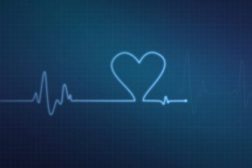Home » cardiovascular disease
Articles Tagged with ''cardiovascular disease''
Public health experts blast Supreme Court’s stay of Clean Power Plan
APHA: Move 'puts public health at risk'
March 3, 2016
Why are some Americans hit harder by heart disease and stroke than others?
And what can be done about it?
June 24, 2015
CDC Year in Review: “Mission: Critical”
The 10 most challenging public-health threats of 2014
December 31, 2014
Become a Leader in Safety Culture
Build your knowledge with ISHN, covering key safety, health and industrial hygiene news, products, and trends.
JOIN TODAYCopyright ©2025. All Rights Reserved BNP Media.
Design, CMS, Hosting & Web Development :: ePublishing




